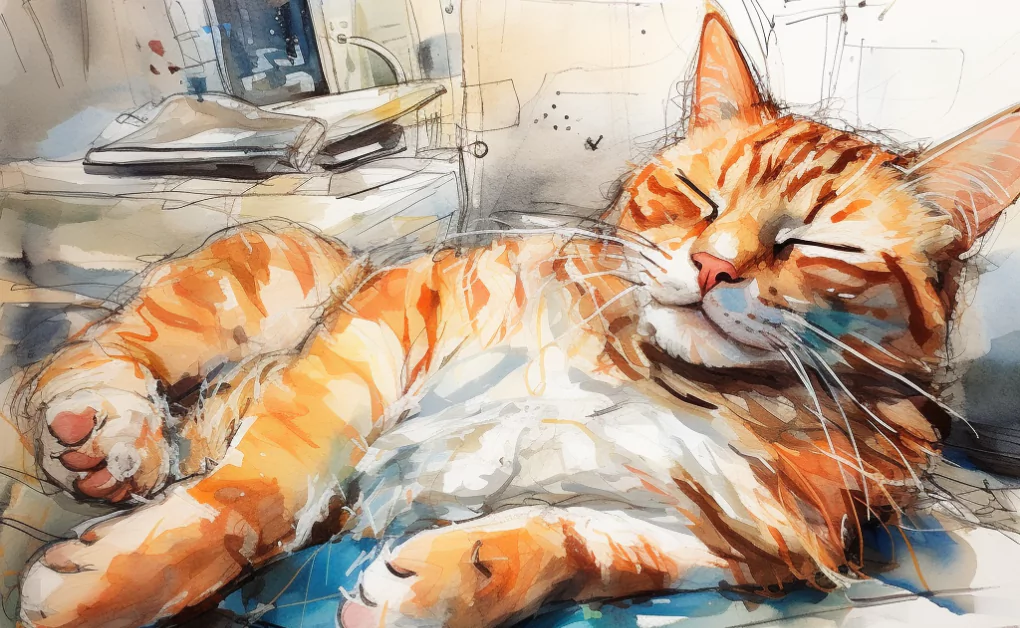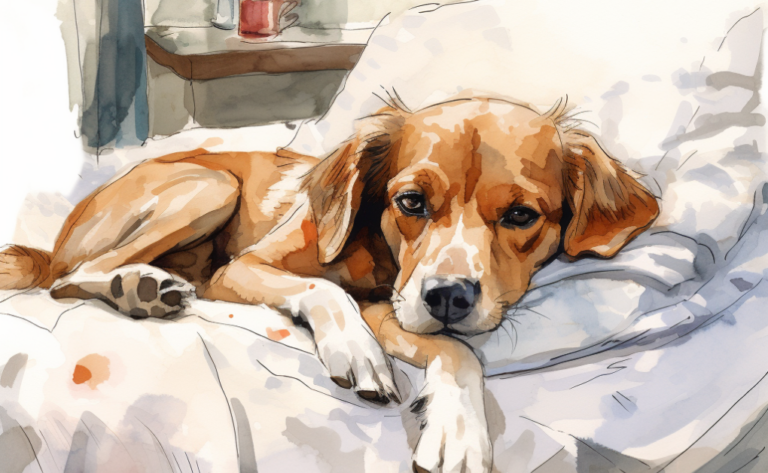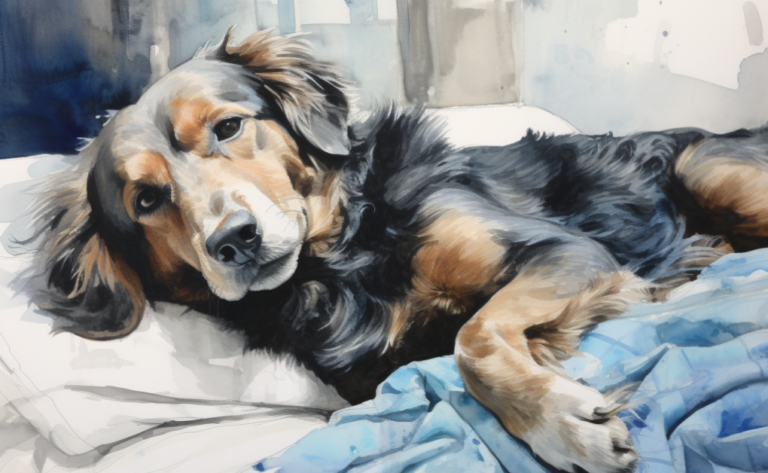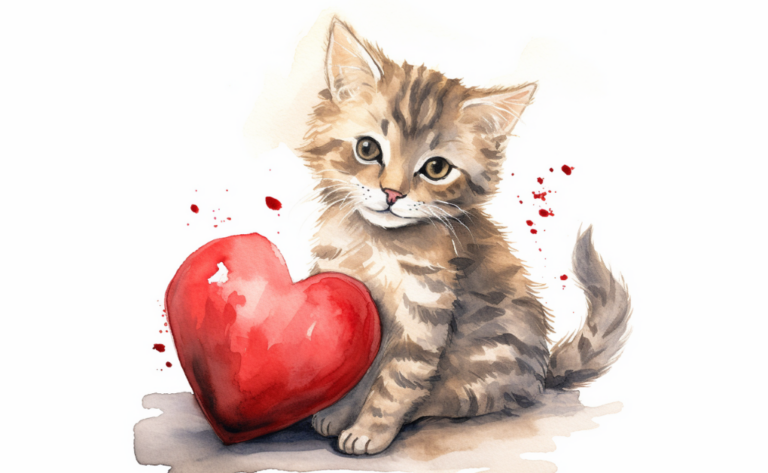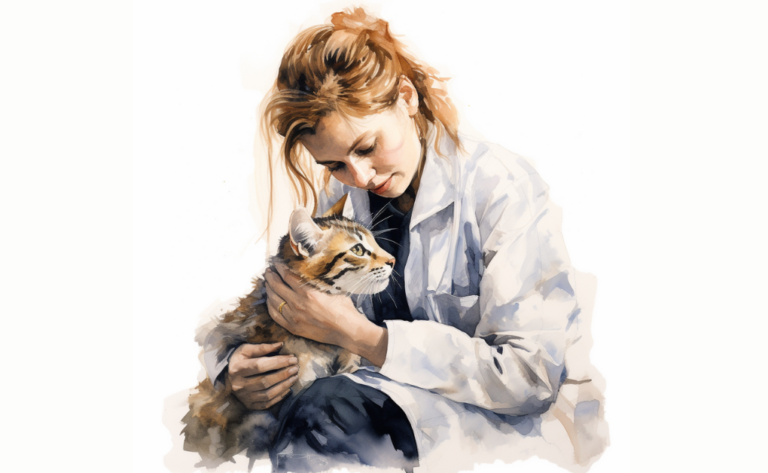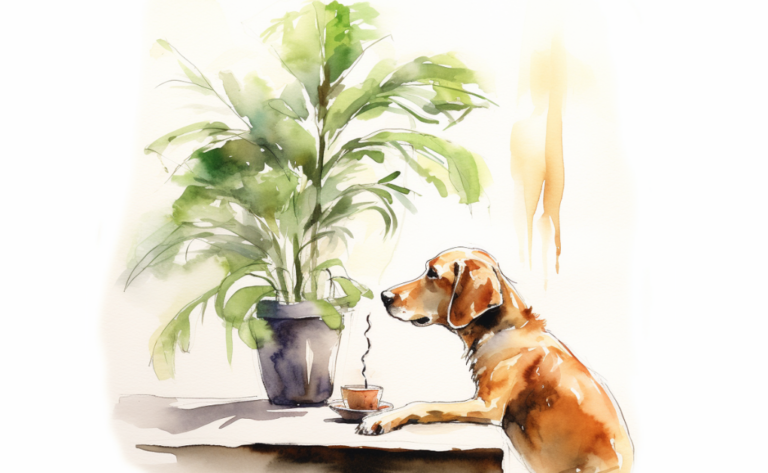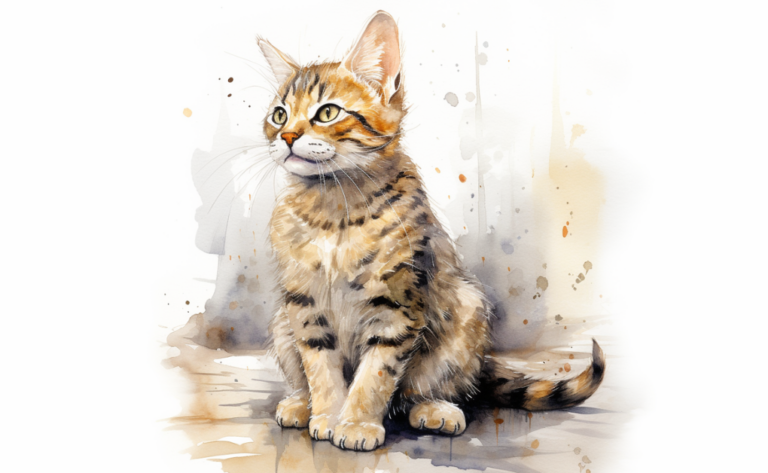What is Hypertrophic Cardiomyopathy in Cats?
What is it?
How is it Treated?
Breed Predispositions
Maine Coon Ragdoll American Shorthair Persian Sphynx British Shorthair Scottish Fold Norwegian Forest Cat Bengal Siamese
Introduction
When Karen brought home her fluffy Maine Coon, Simba, she never imagined that a routine check-up at the vet would reveal a concerning diagnosis. After noticing Simba’s increased breathing rate and lethargy, she discovered that her beloved feline companion was suffering from hypertrophic cardiomyopathy.
Hypertrophic cardiomyopathy (HCM) is frequently seen in cats, particularly breeds like Maine Coon and Ragdoll cats, and is characterized by an abnormal thickening of the heart muscle, notably the left ventricle. This thickening leads to an unusual enlargement and stiffening of the heart, impairing its ability to pump blood efficiently. The progression of hypertrophic cardiomyopathy in affected cats involves internal mechanisms within the heart muscle that instigate its structural modifications.
Comprehending these mechanisms is integral for recognizing this condition and procuring suitable veterinary care to handle the repercussions of HCM on the cat’s cardiovascular well-being. An alarming consequence of this disease can be the formation of a blood clot, which can significantly impede blood flow. Notably, many cats with HCM may not display outward signs, making the condition insidious and reinforcing the need for regular veterinary check-ups.
Types of Hypertrophic Cardiomyopathy in Cats
Hypertrophic cardiomyopathy (HCM) is a common heart disease in cats characterized by the thickening of the heart muscle. There are two main types of HCM:
- Familial HCM: This is the most common form of HCM in cats and is believed to have a genetic component. It is often inherited within certain breeds, such as Maine Coons and Ragdolls. Familial HCM occurs due to a mutation in certain genes that control the structure and function of heart muscle cells. Cats with familial HCM may not show symptoms initially, but as the disease progresses, they may develop heart murmurs, abnormal heart rhythms, and signs of heart failure.
- Secondary HCM: This type of HCM occurs secondary to other underlying conditions. It can be caused by diseases or factors that increase the workload on the heart, leading to hypertrophy (thickening) of the heart muscle. High blood pressure (hypertension), hyperthyroidism, and heart valve diseases can contribute to secondary HCM.
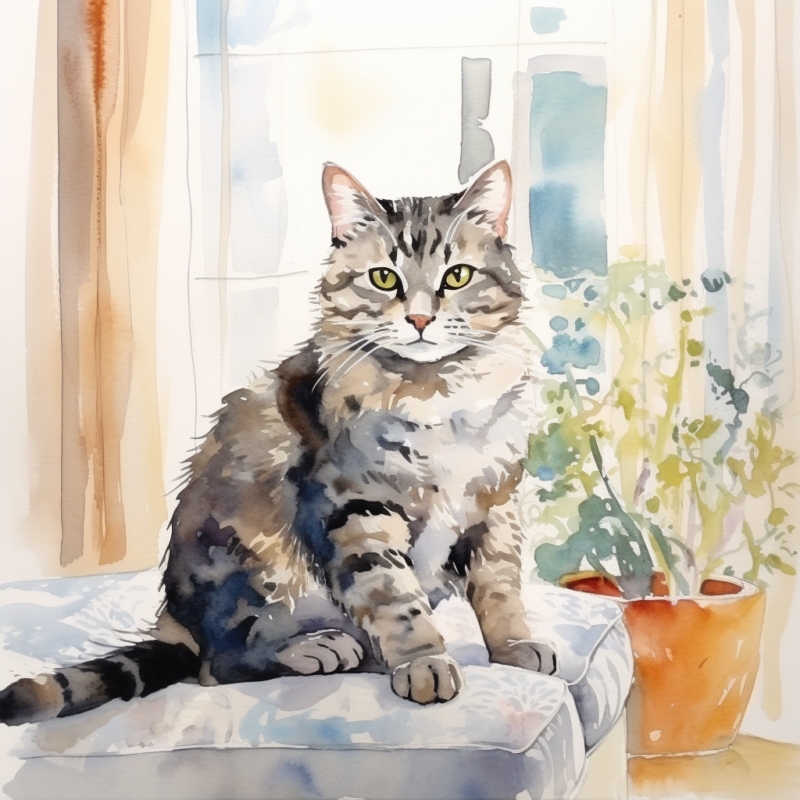
Cats with secondary HCM may present with symptoms related to the underlying condition and signs of heart disease.
It’s important to note that while familial HCM is primarily a genetic disorder, secondary HCM is associated with other medical conditions. Therefore, the treatment and management approach may vary depending on each cat’s underlying cause of HCM. Regular monitoring and veterinary care are essential for cats diagnosed with HCM to monitor their condition, manage symptoms, and provide appropriate treatment based on the specific type and severity of HCM they have.
Causes of Feline Hypertrophic Cardiomyopathy
Hypertrophic cardiomyopathy (HCM) in cats is most commonly believed to originate from genetic factors, functioning as an inherited disease that parent cats can pass on to their offspring. Several genetic mutations related to an escalated risk of developing HCM have been recognized in certain cat breeds.
Nonetheless, it’s crucial to mention that not all occurrences of HCM can be traced back to genetics. Some cats may develop a form of HCM called idiopathic hypertrophic cardiomyopathy due to other root conditions or factors that intensify heart stress. These conditions may involve:
Hypertension (High Blood Pressure)
Chronic hypertension can lead to the muscle of the heart thickening, specifically the walls of the left ventricle. High blood pressure can emerge from various sources, including kidney disease, hyperthyroidism, or certain medications.
Hyperthyroidism
Hyperthyroidism, a common endocrine disorder in older cats characterized by an overactive thyroid gland, can increase heart rate and blood pressure, making the heart muscle thicken over time.
Obesity
Cats’ excessive body weight is linked to various health problems, including cardiovascular diseases. Obesity places additional strain on the heart, leading to heart muscle thickening.
Heart Valve Diseases
Heart valve abnormalities or malfunctions, such as mitral valve disease, can impede blood flow and increase the heart muscle workload. This additional strain can contribute to the onset of HCM.
Other Heart Diseases
HCM can sometimes develop as a secondary condition resulting from other underlying heart diseases. For instance, dilated cardiomyopathy (DCM), characterized by an enlargement of the heart chambers, can sometimes progress into HCM.
It’s significant to note that while these factors can contribute to the development of HCM, genetic factors are the primary cause of the condition. Genetic mutations in certain genes, which regulate the structure and function of heart muscle cells, are responsible for most instances of HCM in cats. Genetic testing can aid in identifying cats with a higher risk of developing HCM, particularly in certain breeds with a genetic predisposition.
Other conditions are also linked with HCM, including pleural effusion, pulmonary edema, and heart murmurs. Additionally, cats with heart disease may suffer from conditions such as restrictive cardiomyopathy and heartworms. Furthermore, the need for critical care is emphasized in cats with preclinical hypertrophic cardiomyopathy due to the risk of sudden death. However, despite the varied potential causes, genetics remains the most common cause of HCM.
How Do I Know If My Cat Has Hypertrophic Cardiomyopathy?
Being vigilant about the clinical signs and symptoms of hypertrophic cardiomyopathy (HCM) in cats can pave the way for early detection and timely intervention. Here are some prevalent indications that your domestic cat might be suffering from HCM:
- Heart murmur: This abnormal heart sound, heard during a veterinary examination, results from the turbulent blood flow within the cat’s heart due to structural abnormalities. Thickened heart walls, a characteristic feature of HCM, often cause this phenomenon.
- Rapid or labored breathing: Increased respiratory efforts, including panting, open-mouth, or rapid breathing, can be witnessed in cats with HCM. This is often because the heart struggles to pump blood effectively, leading to fluid buildup in the lungs.
- Coughing: Persistent coughing can be a symptom in some cats with HCM. This is often linked to fluid accumulation or congestion in the lungs.
- Lethargy and weakness: Cats experiencing HCM may showcase decreased energy levels, increased lethargy, or a diminished interest in physical activities.
- Poor appetite and weight loss: A decline in appetite is common in cats with HCM, often leading to weight loss or suboptimal body condition.
- Fainting or collapse: In severe HCM cases, cats may suffer from fainting spells or sudden collapse episodes, known as syncope. These can occur due to insufficient blood supply to the brain.
If any of these signs become apparent in your cat, it’s essential to seek veterinary attention immediately. Your veterinarian will execute a thorough examination, including listening to your cat’s heart, conducting diagnostic tests such as echocardiography (ultrasound of the heart), and possibly recommending a consultation with a veterinary cardiologist for further evaluation.
It’s crucial to note that many cats with HCM, particularly cats with subclinical HCM, may be asymptomatic. Sometimes, the first sign may be a serious condition such as aortic thromboembolism, a life-threatening HCM complication. Therefore, regular veterinary check-ups are important, particularly for breeds at higher risk for this condition.
Diagnosis of HCM in Cats
- Physical examination: During a physical examination, the veterinarian will listen to your cat’s heart using a stethoscope. They will pay attention to abnormal heart sounds, such as murmurs or gallops, which can indicate HCM. They will also assess other clinical signs, such as difficulty breathing or abnormal lung sounds.
- Echocardiography (ultrasound): Echocardiography is a non-invasive imaging technique that allows the veterinarian to visualize the heart’s structure and function in real time. It provides detailed information about the heart walls’ thickness, the chambers’ size, and the heart valves’ movement. Echocardiography is considered the gold standard for diagnosing HCM in cats.
- Electrocardiography (ECG): An ECG measures the heart’s electrical activity. It can help detect irregularities in the heart rhythm, which can be associated with HCM. However, ECG findings alone are not sufficient to diagnose HCM definitively.
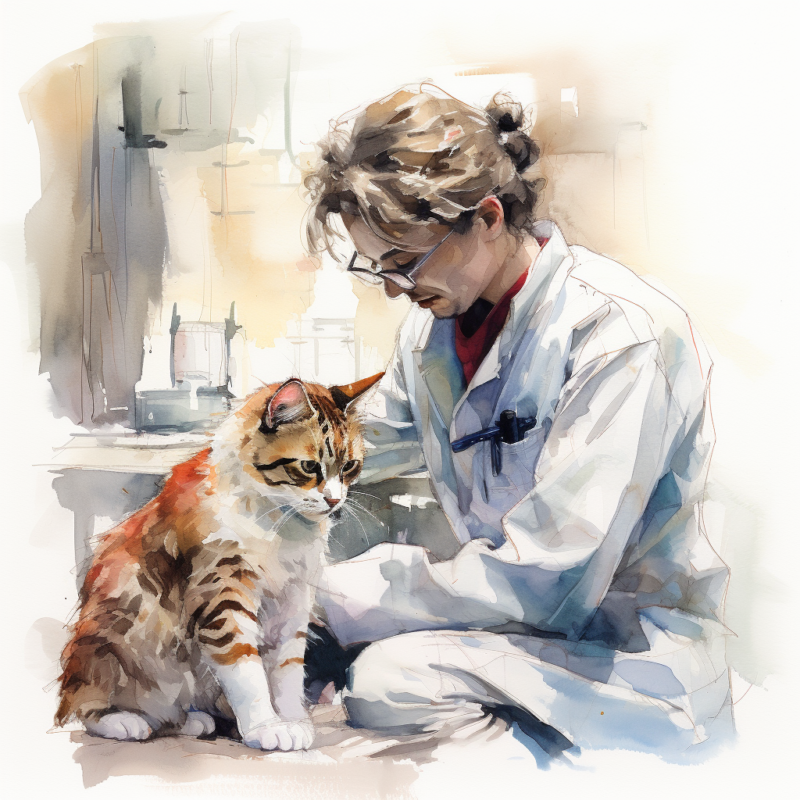
- Radiography (X-rays): X-rays provide a two-dimensional image of the heart and lungs. Although they may not directly diagnose HCM, they can help evaluate the size and shape of the heart and detect signs of fluid accumulation in the lungs, which may be present in the advanced stages of HCM.
- Blood tests: Blood tests may be performed to evaluate organ function, assess electrolyte levels, and rule out other underlying conditions that may contribute to or mimic the symptoms of HCM.
It’s important to note that a comprehensive evaluation, including physical examination, echocardiography, and potentially additional diagnostic tests, is necessary to diagnose HCM in cats accurately.
The veterinarian will assess the findings from these diagnostic methods to determine the presence and severity of HCM and develop an appropriate treatment plan for your cat.
Treatment and Management of Hypertrophic Cardiomyopathy in Cats
Treatment approaches for feline HCM depend on the severity of the disease and its impact on your cat’s quality of life. While some cats with HCM can live long lives, others may die abruptly due to disease-related complications.
Although there’s no cure for HCM, many treatments can help manage disease progression and enhance your cat’s overall health.
Medications
Pharmacological management is common for feline heart diseases like HCM, aiming to alleviate symptoms. The specific medications prescribed hinge on the cat’s health status and may encompass the following:
- Beta-blockers: These drugs help decelerate the heart rate and lessen the contraction force, reducing the workload on the abnormal heart.
- Calcium channel blockers: These drugs help relax the heart muscles and optimize blood flow, thus mitigating the strain on the heart.
- Antiplatelet drugs: These drugs thwart the formation of blood clots, decreasing the risk of complications associated with arterial thromboembolism in the heart.
The veterinarian will prescribe your cat’s most appropriate medications and dosages based on their unique needs.
Dietary Management
Dietary modifications can play a pivotal role in managing HCM in cats. Low-sodium diets are often advocated to minimize fluid retention and lessen the workload on the heart. Furthermore, diets enriched in omega-3 fatty acids may promote heart health.
Lifestyle Adjustments
Certain lifestyle modifications may benefit cats with HCM. These include reducing stress, creating a serene and quiet environment, and averting excessive physical exertion.
Regular Monitoring
Periodic follow-up visits to the veterinarian are essential for cats with HCM. These visits might comprise physical examinations, blood tests, echocardiograms, or other diagnostic tests to monitor the cat’s heart function, assess disease progression, and tweak the treatment plan as required.
Surgical Intervention
Cat surgery may sometimes be necessary for felines with severe HCM or complications. This could involve removing blood clots, rectifying heart valve abnormalities, or other cardiac surgeries. However, surgical options for HCM in cats are less frequently employed than in humans.
It’s vital to remember that the treatment plan for feline HCM is custom-made to suit the individual cat’s requirements and might vary based on the severity of the condition and other complications. The veterinarian will collaborate closely with you to devise a comprehensive treatment strategy to enhance your cat’s quality of life and manage symptoms associated with HCM, including high blood pressure and other signs of an abnormal heart.
Prevention of Hypertrophic Cardiomyopathy in Cats
Ensuring your cat’s well-being involves several strategies, including regular vet check-ups, appropriate cat nutrition, maintaining a healthy weight, and reducing stress levels. These strategies are significant in cat preventive care, especially for diseases like hypertrophic cardiomyopathy (HCM).
Regular Vet Check-ups
Routine veterinary exams are crucial in catching early signs of heart disease, such as HCM. Clinical diagnosis of idiopathic hypertrophic cardiomyopathy often involves listening for heart murmurs or irregular rhythms during these exams. Regular check-ups are necessary, even if your cat appears healthy, as cats often hide their symptoms until the disease progresses.
Genetic Testing
Certain breeds of cats are more prone to HCM, including Maine Coons and Ragdolls. Owners of these breeds may want to consider genetic testing. While this doesn’t prevent the disease, it can help identify if your cat is at high risk, allowing for early intervention and a better prognosis for cats with HCM.
Maintain a Healthy Weight and Diet
Appropriate cat nutrition is critical in preventing and managing heart diseases like HCM. Obesity can exacerbate heart problems in cats, so feeding your cat a balanced diet and ensuring they get enough exercise is essential. It’s best to avoid feeding your cat human food, as some ingredients may lead to weight gain and other health complications.
Reduce Stress
Stress can exacerbate symptoms and cause sudden deterioration in cats with HCM, so providing a calm, stable environment is essential. Minimize changes in your cat’s routine and provide them a quiet, secure place to retreat and rest.
Medication Management
Following your vet’s medication instructions is vital if your cat receives a clinical diagnosis of idiopathic hypertrophic cardiomyopathy. Only stop or change your cat’s medication after consulting your vet, even if your cat seems better.
While these strategies can help manage risk and ensure early detection, they can’t guarantee HCM prevention. Always maintain regular communication with your vet regarding your cat’s health.
Frequently Asked Questions
Disclaimer: The information provided on this veterinary website is intended for general educational purposes only and should not be considered as a substitute for professional veterinary advice, diagnosis, or treatment. Always consult a licensed veterinarian for any concerns or questions regarding the health and well-being of your pet. This website does not claim to cover every possible situation or provide exhaustive knowledge on the subjects presented. The owners and contributors of this website are not responsible for any harm or loss that may result from the use or misuse of the information provided herein.

